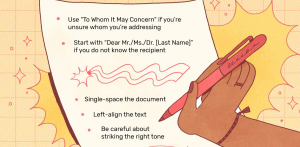This section discusses the essential techniques for writing effective business messages. They are known as the 7Cs of Communication Skills.
There are some principles to make communication effective. They are seven in number, and every principle begins with the letter C, therefore, they are called the 7Cs of Communication Skills.
When we talk about “Effective Communication”, one thing that comes in mind is the basic principles of “effective communication”. These principles tell how your message can become effective for your target audience. Moreover, they also tell about the style and importance of the message.

The 7Cs of communication skills are listed as under:
- Completeness
- Conciseness
- Consideration
- Concreteness
- Clarity
- Courtesy
- Correctness
Completeness
Message Receiver- either listener or reader-desires complete information to their question. Therefore, suppose you are working with a multinational company dealing in electronics, like TV. Now, let’s say, one of your major customers wants some technical information regarding the TV because he wants to convey the same to the end-users. In this case, you have to provide him complete information in a short span of time. If possible, provide him some extra information, if desirable. In this way, you can maintain good business relations with him. Otherwise, he may switch to another company. Thus completeness is the basis for achieving the 7cs of communication skills.
Five W’s
One way to make your message complete is to answer the five W’s i.e. the who, what, when, where, why and how questions. In this connection, we see that though we call it 5W’s while we actually write 6 questions. Actually, How is among these questions but, as it does not begin with W, so we do not say it, yet we include it. This five-question method is useful when you write requests, announcements, or other informative messages. For instance, to place an order for something, make clear WHAT you want, WHEN you need it, WHERE it is to be sent.
In the end, we can say that you must provide him:
- All necessary information as requested by him.
- Answers all of his/her questions carefully.
- Provide some more information, when desirable.
Conciseness
It is the second most important of the 7cs of communication skills.
Conciseness means “saying, what you have to say, in the fewest possible words.” It is a requirement of effective business communication. As a business executive is always short of time, therefore, a concise message saves time and expenses for both parties.
To achieve conciseness, you must consider the following.
- Avoid wordy expression.
- Include only relevant material.
- Avoid unnecessary repetition.
Avoid wordy expression
Instead of “at this time” you can just use a concise word “Now.” Always try to use “To the point Approach” in business scenarios.
Include only relevant information
Always try to provide only relevant information to the receiver of the message.
Let’s say, one of your customers requested a list of clients of the company. Therefore, in reply, you should provide simply a list of the clients at the panel of your company. Hence, there is no need to provide detailed business information about the client. Besides, observe the following suggestions to include only relevant information.
- Stick to the purpose of message.
- Delete irrelevant words.
- Avoid long introduction, unnecessary explanation.
- Get to the important point concisely.
- Avoid unnecessary Repetition.
However, repetition is sometimes necessary for focusing on some special issue. But when the same thing is said without any reason, the message becomes wordy and boring. Following are some ways to eliminate unnecessary words.
- Use shorter name once you have mentioned the longer one. For example, for Spectrum communications Private limited use Spectrum.
- Use pronouns or initials. For example, instead of world trade organization use WTO. Similarly, use IT for Information Technology (keeping in views that receiver knows about these terms).
Consideration
Consideration means “preparing every message with message receiver in mind.” Try to put yourself in their place before handling any matter related to them. This is called You Attitude.
It is, therefore, very important for effective communication. While writing a message, you should always keep in mind your target group.
Consideration is a very important C among all the 7Cs of communication skills. For this reason, the following are three specific ways to indicate consideration:
- Focus on “you” instead of “I” or “We”.
- Show audience benefit or interest of the receiver.
- Emphasize positive, pleasant facts.
We attitude
I am delighted to announce that we will extend our business hours until late in the evening to make shopping more convenient.

You attitude
“You will be able to shop in the evening with the extended hours.”
Show audience benefit or interest of the receiver
Readers may react positively when the benefit is shown to them. Always try to address his/her needs and wants. Always show/write to the reader what has been done so far as his/her query is concerned.
Emphasize positive and pleasant facts
It means you stress on what can be done instead of what cannot be done. For example:
- You do not have your CNIC. So, it is impossible to open your account today. (Negative, unpleasant.)
- As soon as your Identity card reaches us, we will gladly open an account for you. (Positive, pleasant)
- We don’t refund when the returned item is soiled and unsalable. (Negative, unpleasant.)
- We refund when the returned item is clean and resalable. (Positive, pleasant)
Concreteness
This is the fourth important C of the 7cs of communication skills. Concreteness means “being specific and definite instead of being vague and general.”
It means that message should be specific instead of being general. Misunderstanding of words creates problems for both parties i.e. the sender and the receiver. When you talk to your client, always use facts and figures instead of using ambiguous words.
The following guidelines should help you achieve Concreteness.
- Use specific facts and figures.
- Choose image building words
General
He is very intelligent student of the class. So, he stood first in the class.
Concrete
Ali’s GPA in BSE Software Engineering was 3.95/4.0. Therefore, he stood first in his class.
Always write on very solid ground. Therefore, it should definitely create a good image as well.
Clarity
“Getting the meaning from your head into the head of your reader ,accurately ” is the purpose of clarity. In effective business communication, the message should be clear so that the reader can understand it easily.
- Choose precise words.
- Choose familiar and easy words.
- Construct effective sentences and paragraphs
In business communication, always use precise words rather than longer statements. Therefore, if you have a choice between a longer word and a shorter one, always use the shorter one.
Likewise, always use familiar and easy to understand words so that your reader will quickly understand.
| Familiar | Unfamiliar words |
| After | Subsequent |
| Home | domicile |
| For example | For example |
| Pay | remuneration |
| Invoice | statement for payments |
Courtesy
Knowing your audience allows you to use statements of courtesy. For this purpose, be aware of your message receiver. True courtesy involves being aware not only of the perspective of others but also their feelings. In other words, courtesy stems from a sincere you-attitude. It is not merely politeness with only the use of “please” and “thank you.” Although these are good, not the only things. Rather, it is a politeness that grows out of respect and concern for others. Courteous communicators generate a special tone in their writing and speaking.

Following are some suggestions for generating a courteous tone:
- Be sincerely tactful, thoughtful and appreciative.
- Use expressions that show respect for the others.
- Choose non-discriminatory expressions.
Be sincerely Tactful, Thoughtful and Appreciative
Some people are careless in the use of language. This characteristic is a common cause of discourtesy. Sometimes, they come from a mistaken idea of conciseness. Sometimes they are the result of negative personal attitudes. Likewise, sometimes they come from not knowing the culture of a country or even groups of people.
Accordingly, avoid expressions like those in the left-hand column below. So, you should rephrase them as shown in the right-hand column:
| Tactless, Blunt | More Tactful |
| Stupid letter, I can’t understand. | I think I am slow at understanding things. Could you please explain it? |
| It’s your fault, you did not properly read my latest FAX. | Sometimes my wording is not precise; let me try again. |
Thoughtfulness and Appreciation
Sending warm and cordial messages to succeed in building goodwill. They send messages of congratulation if there is something happy. Likewise, they send condolence and sympathy messages, if something unhappy happens to somebody. The value of goodwill or public esteem for the firm has a value that is more than thousands of dollars.
Correctness
It is the most important of the 7Cs of Communication Skills. At the core of correctness is proper grammar, punctuation, and spelling. However, the message may be perfect grammatically and mechanically but still insult or lose the customer. The term correctness, as applied to business messages, also means three characteristics:
- Use the right level of language.
- Check the accuracy of figures, facts and words.
- Maintain acceptable writing mechanics
Use the right Level of Language
We suggest that there are three levels of language:
- Formal
- Informal
- Substandard
Formal and Informal Words
Formal writing is often related to academic writings, scholarly, legal documents, top-level agreements, and other documents, where formality is necessary, are included in this category.
Informal writing is more characteristic of business writing. Consequently, you use words that are short, and well-known. For this purpose, the following comparison list can help:
| More Formal | Less formal |
| Participate | Join |
| Endeavor | try |
| Ascertain | find out |
| Utilize | use |
| Interrogate | question |
Avoid substandard language: Similarly, using incorrect words, incorrect grammar, and faulty pronunciation show your incompetence. They show your lesser skill in the English language. Some examples are as follows:
| Substandard | More Acceptable |
| Ain’t | isn’t/aren’t |
| Can’t hardly | can hardly |
| Aim to proving | aim to prove |
| Desirous to | desirous of |
| Stoled | stolen |
Facts and Figures Accuracy
So check Accuracy of Facts, Figures, and words. As your goal is to be as precise as possible, you should check and double-check the figures, facts, and words for any possible mistake.
It is better to get the help of persons for accuracy. Thus their comments will give a better idea of its validity.
Figures and facts
- Verify your statistical data.
- Double-check your totals.
- Avoid guessing at laws that have an impact on you, the sender and your message receiver.
- Have someone else read your message if the topic involves data.
- Determine whether a “fact” has changed over time.
Proper Use of Confusing Words
English is an ever-changing language. It is constantly changing. In fact, even dictionaries can not keep up with the rapid changes in our language. Hence, the following words are often confused in usage:
- A, An; use a before consonants and consonants sound or a long “u” sound. Use a before vowels.
- Accept, except; accept is a verb, and means to receive. Except is a verb or a preposition and relates to omitting or leaving out.
- Anxious, eager; Anxious implies worry while eager conveys keen desire.
In short, knowledge of the 7Cs of Communication skills is very important. It is necessary for getting your desired feedback. Without it, you may communicate, but that may not be effective. Hence, that may not bring the desired feedback which is the objective of all professional communication.
If you have any questions or suggestions regarding the 7cs of communication skills, please feel free to leave your feedback in the comment section below. Thank You!
# 7cs of communication skills # 7cs of communication skills # 7cs of communication skills # 7cs of communication skills # 7cs of communication skills # 7cs of communication skills # 7cs of communication skills # 7cs of communication skills # 7cs of communication skills # 7cs of communication skills # 7cs of communication skills






Today the topic was about 7C’s of communication. It is called 7 C because each every principal starts with the Letter C, in which we only discuss about the first C i.e. Completeness. Completeness is giving complete information or message in a short span of time. According to my point of view a person will not be a good communicator if he or she not follow the seven C’s of effective communication. This is all about today’s lecture.
Today we have talked about 7 C’s of communication. The role of 7 C’s in communication is to make message effective. We have discussed first C in detail. Where first C refers to Completeness. It means there should be completeness in communication. In order to facilitate receiver, message should be complete. It should provide all necessary information. And should give extra information when desirable.
In this article I learnt about 7 C’s of communication or we called them some principles of communication. These principles of communication are a useful way to ensure good and business communications. In our daily life,we all are communicating with lots of people like when we are at home,at university and furthermore communicating with our neighbours. Through this article I learnt that messages that we convey to others in case of providing any information to them should be conveyed in a well structured manner.
If one’s we give them proper information of things they told with us, it will make a good impression of us infront of others. Even in reality, as a GR I was also facing lots of problems while passing on teachers messages to others as it is, but no one understand it clearly that’s why from getting rid of this now I started to mentioned all the necessary information which I think that these are significant or important for colleagues understanding. furthermore,I will also try my best to convey my messages to others in a more clear and effective way which will never make any problem for others.
Thank you.
Put audience benefit in front. And emphasize positive and pleasant facts. These things really help in effective business communication.
In this topic i learn about seven C’s of communication skills . It actually helps to improve the professional skills and increase the chance that message will be understood in the same way as it was intended.
In today’s class we have learned the remaining C’s of communication. These were concreteness, clarity, courtesy and completeness. If we don’t use these things in our communication than sometime it create difficulties and make troubles for the reciever or listener to understand during communicating. So one should keep these things in mind during communicating. Your message should always be complete, concrete and clear so the user easily understand otherwise this will cause problems and he/she will not be responded properly or if responded then may be he/she will get wrong, negative or unproper response.
Very helpful and easy to understand…..❤❤❤
Communication:
Communication means conveying of idea between two or more than two persons, objects, person and object with a desire feedback.
You Attitude: preparing every message with message receiver in mind.” Try to put yourself in their place before handling any matter related to them. This is called “You Attitude.”
Communication:
Exchanging of iinformation by speaking, writing or using other medium between two person, two objects or between person and object is called communication.
You Attitude:
you attitude is a writing style in business communication. It emphasizes reader rather than writer. It means that you always tried to give importance to your reader. Try to put yourself in the reader place and then write anything.
*Communication:*
Communication is defined as a act of conveying ideas to other persons. It is defined as a process of exchanging ideas between persons .Not only conveying ideas but also getting desired feedback according to situation. there are different type of communication such as person to person, object to object and object to person.communcation play very vital role in our every field of life.
*_You attitude_*
You attitude means to give importance to your receiver.its means to consider the ability of your receiver.
Always show the benefit of your receiver in your communication style. So always consider you attitude while communicating someone. If you are working under any organization so you can built good business relation with your customer s
Communication: Communicating or exchanging information through speaking or writing, or using another means to successfully communicate or share thoughts and feelings, and therefore communication contains three parts: the sender, the message and the recipient.
Your position: The “you” position is designed to make readers feel that they are viewing the situation from a perspective. We want to make readers feel that they respect and are sensitive to their feelings so that they are not influenced by themselves. We also use the ‘you’ situation to make sure your readers understand what they are going to get, rather than focusing on what we will get.
Do you thing communication without feedback can be successful? Make the You-attitude clear for yourself. Don’t ramble. never shoot into the sky. be definite and to the point
Sorry actually I was writing “you attitude” and with auto dictionary it become your position
And the answer to your question about feedback is as follows:
Communication is the process with desired feedback as their objective.
So, feedback is basically the basic chain of command, without a proper feedback the communication is incomplete and cannot move forward because both sender and receiver will be thinking something else.
Feed back is like a backbone to the entire process of communication.Feedback is important because it shows the receiver is interactive,the receiver is an effective and keen Listener and a constructive feedback ultimately motivates the sender.
Hence feedback is very necessary for a successful communication and communication without feedback can’t be successful.
The desired feedback
Communication is the process of imparting or exchanging ideas and information between two or more persons, objects or a person and object with the desired feedback.
The ideas can conveying through speaking, writing or using some other mediums.
In effective communication clarity of ideas is very important for getting desired feedback.
For example
Two persons communicating with each other through speaking, chatting and calling etc.
You Attitude.
It’s mean “showing audience benefits and interests”.
When you are talking with someone that person is “you” for you and you are “I” for that person.So always try to focus on “you” instead of “I”.
You Attitude motivates the message receiver either its reader or listener and can brings favourable response or outcome even in bad news situation.
Communication is the process of exchanging ideas between two or more persons objects or a person and object with the desired feedback.
For example.
Two persons communicating with each other through speaking writing etc.
You Attitude.
It’s means show audience benefits.Always try to show audience benefits it’s very helpful in effective business.Always focus on you attitude.
Communication is exchange of ideas between two or more object or person with desire feedback. Communication is held between person to person, object to object and object to person.Communication skill play important role in every field of life specially in teaching.
Your attitude: Preparing every message with message receiver in mind.” Try to put yourself in their place before handling any matter related to them. This is called “You Attitude.”
nice work and easy to understand the 7 Cs of communiaction. every point is clear with explaintion and exampls.